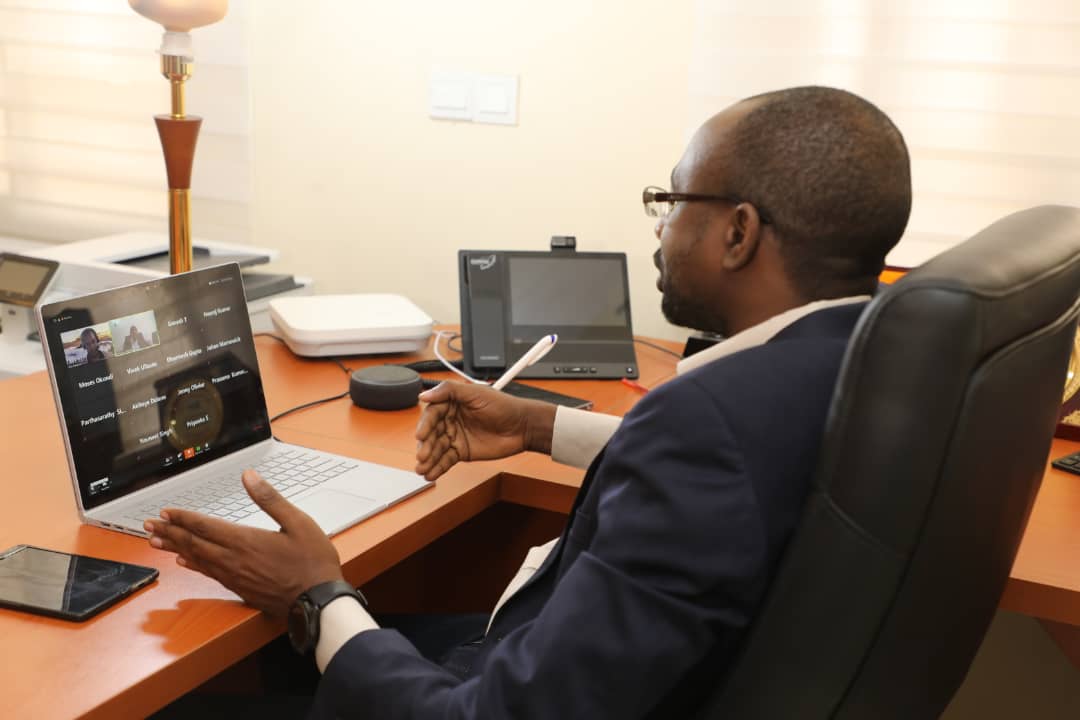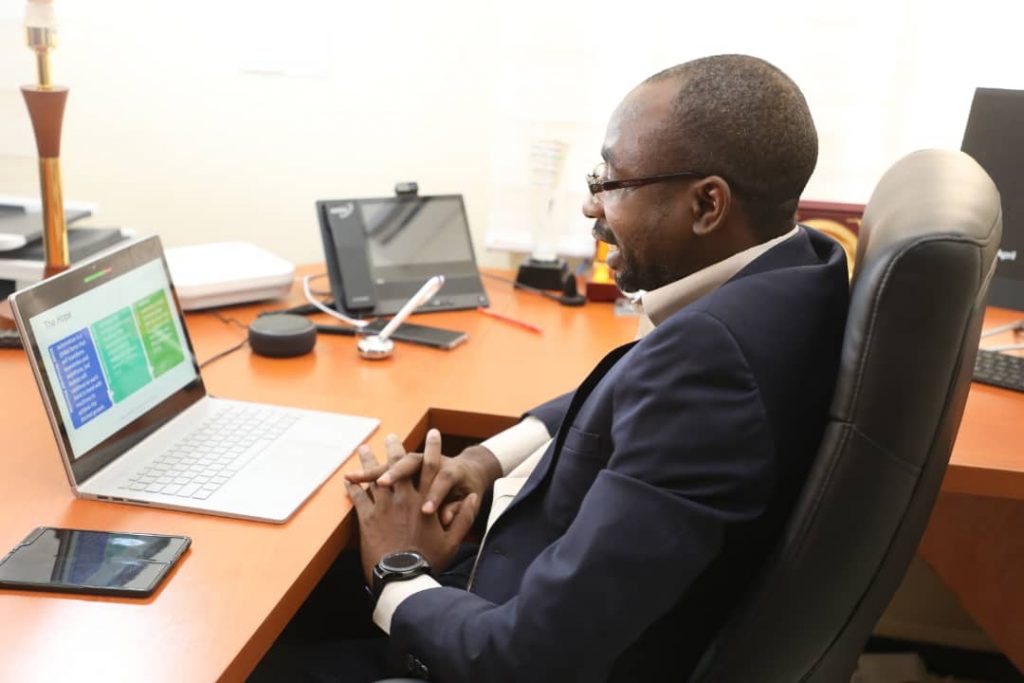Director-General of the National Information Technology Development Agency (NITDA), Mallam Kashifu Inuwa Abdullahi, has declared that in every crisis there is a hidden opportunity, stating that the opportunity in this COVID-19 pandemic for Nigeria and African countries is the adaption to Smart Automation.
Abdullahi made this known during his online presentation on Smart Automation Africa/West Africa hosted by Tradepass.
The Webinar which was hosted by Tradepass and described as the biggest in Africa had as its theme: “Smart Automation in Africa,” and was exclusively focused on the benefits of automation for organisations in East and South Africa.
The virtual event had over 300 people participating.
The meeting was aimed at focusing on the benefits of automation for organizations in West Africa channelled towards growth and development.
Mallam Kashifu dwelt on the effects of Smart Automation which he said constitutes pre-era, era and post-era of COVID-19.
According to him, this era consists of the fear, the hope, crisis, impact and the silver lining as well as the recovery and the Digital First strategy.

He stated that “smart automation expedites processes and minimizes human errors. It powers industries to innovate and grow in size exponentially.”
Abdullahi categorized his presentation into three folds: Smart Automation in pre-COVID-19, (fairs and hubs), Smart Automation in COVID-19 (the crisis, impacts and the silver lining), and Smart Automation post-COVID-19 (the recovery and the digital fast strategy).
The NITDA DG, speaking to his online audience said, “In February 2020, according to statistics, global Automation market size was more than 186 billion USD and predictions show its increase to over 214.3 billion USD in 2021 with process Automation topping the market share with 71.2billion USD.
“This will be followed by industrial software, factory automation, robotics, artificial intelligence, 3D printing and drum step technology.”
He further mentioned that according to the World Economic Forum, the emerging estimated professions resulting from automation could account for 6.1 million jobs globally from 2020 to 2022.
According to him, JP Morgan believes automation can increase global GDP by over 1.3 trillion USD in the next 10 years from 2020.
Mallam Kashifu believes that in Nigeria today, smart automation is the most promising silver lining in this crisis, stating that the banking sector now is the most automated in terms of process automation.
“There have been reports of huge revenues through electronic transactions which are done by customers from the comfort of their homes with Mobile devices. This also applies to other African countries using smart innovations to increase their earnings and run their day to day activities smoothly,” he said.
He stressed that people should discard the fear of losing their jobs to machines but rather implore the use of smart automation to transform economies and workforce for better development in the digital economy.
Abdullahi said the world is now faced with health and economic crisis through COVID-19 pandemic disrupting businesses, supply chains and creating a loss of job, but this, has, as a result, opened opportunities for digital platforms and smart automation to take over in the post-COVID-19 pandemic.
“There are challenges like inadequate funding, policies and enabling environments, over-reliance on foreign goods and technologies faced by African countries, but with this COVID-19 crisis, African countries should think within the box to produce what it desires,” he argued.
Mallam Kashifu Abdullah, however, advised African countries to come up with the right policies, enabling environments and best practices with adequate funding to achieve optimum goals and growth during this crisis.
“From the activities of the COVID-19, it is clear that the world is going digital in its operations. This means things will not be the same as it was before the crisis. Hence, there is a need for us in Africa to embrace technology. It is the next cash flow for every country and will serve as an avenue for growth and development,” he added.
Other presenters at the Webinar included the Chief Information Officer, Dangote Group Prasanna Kumar Burri and Chief Executive Officer of Vodacom, Ghana, Mr. Moses Okundi.

